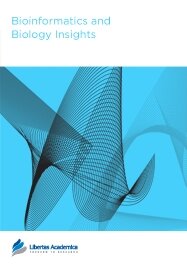

Publication Date: 19 May 2013
Type: Short Report
Journal: Bioinformatics and Biology Insights
Citation: Bioinformatics and Biology Insights 2013:7 143-152
doi: 10.4137/BBI.S11601

To date, the utility of single genetic markers to improve disease risk assessment still explains only a small proportion of genetic variance for many complex diseases. This missing heritability may be explained by additional variants with weak effects. To discover and incorporate these additional genetic factors, statistical and computational methods must be evaluated and developed. We develop a multi-locus genetic risk score (GRS) based approach to analyze genes in NADPH oxidase complex which may result in susceptibility to development of inflammatory bowel disease (IBD). We find the complex is highly associated with IBD (P = 7.86 × 10−14) using the GRS-based association method. Similar results are also shown in permutation analysis (P = 6.65 × 10-11). Likelihood ratio test shows that the single nucleotide polymorphisms (SNPs) in the complex without nominal signals have significant contribution to the overall genetic effect within the complex (P = 0.015). Our results show that the multi-locus GRS association model can improve the genetic risk assessment on IBD by taking into account both confirmed and as yet unconfirmed disease susceptibility variants.
PDF (623.64 KB PDF FORMAT)
RIS citation (ENDNOTE, REFERENCE MANAGER, PROCITE, REFWORKS)
Supplementary Files 1 (35.92 KB ZIP FORMAT)
BibTex citation (BIBDESK, LATEX)
XML
PMC HTML

Bioinformatics and Biology Insights fills a gap in current journals. Ever more often, bioinformatics and detailed analysis of data creates novel, unexpected insights. It is good to have a journal which focusses on exactly this aspect of bioinformatics research, putting the biology insights upfront with high respect for the different methods in bioinformatics.
Facebook Google+ Twitter
Pinterest Tumblr YouTube